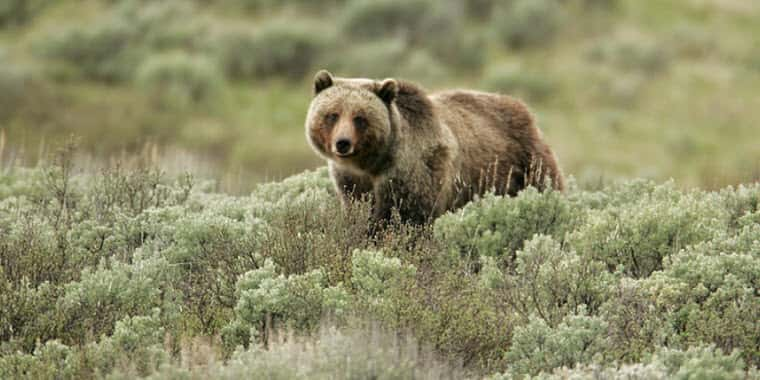Senate Western Caucus Chair and Ranking Member of the Fisheries, Water, and Wildlife Subcommittee, Cynthia Lummis (R-WY) led 17 of her colleagues in introducing a Congressional Review Act (CRA) resolution to preserve the regulatory definition of “habitat” within the Endangered Species Act (ESA). By defining habitat, this CRA is intended to provide clarity and transparency to landowners and businesses in Wyoming and throughout the west.
“There is an important distinction between ‘habitat’ and ‘critical habitat’ for an endangered species,” said Lummis. “By scrapping the definition of habitat within the ESA, the Biden administration is causing chaos and confusion among private property owners throughout Wyoming and the west. Two-thirds of all endangered species are located on private lands, so private property owners need to be partners in species recover, not the enemy. This CRA will ensure that Wyoming landowners are not unfairly targeted by the administration and that habitat designations are based on science, not on politics.”
The resolution comes after the Biden administration rescinded the definition of “habitat,” a 2020 classification which importantly narrowed the scope of the term “critical habitat.” Among potential impacts, dropping the distinction could reduce regulatory certainty for many stakeholders. Particularly for lands with a federal nexus through permits or funding, a “critical habitat” designation often elicits added scrutiny, use limitations, and higher costs.
A critical habitat designation has major impacts on landowners, as it reduces the value of any private property within a designation because prospective landowners recognize the burdens that accompany a designation. It also greatly impacts any land with a federal nexus through permits or funding, as a critical habitat triggers significant scrutiny, resulting in burdensome limitations on land use and costly mitigation requirements.
In December 2020, citing Weyerhaeuser Co. v. U.S. FWS, the Trump administration finalized a rule that defined the term “habitat” as “the abiotic and biotic setting that currently or periodically contains the resources and conditions necessary to support one or more life processes of a species.”
On June 24, 2022, the Biden administration finalized a rule that rescinded the 2020 rule, eliminating the habitat distinction, leaving regulated parties in the dark and undermining the ESA’s purpose of protecting endangered or threatened species.
The Endangered Species Act directs the Secretary of Interior through the U.S. Fish and Wildlife Service and/or the Secretary of Commerce through the National Marine Fisheries Services to designate critical habitat for listed species.
“The Biden administration is once again burdening Wyoming farmers, ranchers and landowners with regulations that hurt our agriculture producers and reduce land value,” said Wyoming’s John Barrasso, also a bill sponsor. “I’m proud to join Sen. Lummis’ effort to reinstate the Trump administration’s rule to clearly define habitats under the Endangered Species Act.”
North Dakota Senator Kevin Cramer, a member of the Senate and Environment Public Works (EPW) Committee, also signed on board to support the bill. “The Biden administration likes to talk about investing in America, yet every rulemaking it puts out makes things more complex,” said Senator Cramer. “Scratching the 2020 definition of ‘habitat’ only empowers bureaucrats to control broad swaths of land with little-to-no relevance to endangered species. North Dakota landowners know better than most the heavy-handedness and intransigence of the Fish & Wildlife Service. The last thing we should be doing is giving them more control.”
“This CRA is about pushing back on the overreaching Biden rule that doesn’t respect private property rights and would lead to uncertainty for landowners when it comes to whether their property may be designated as critical habitat,” said John Hoeven (R-ND).
“Montanans know best how to manage wildlife in a way that is safe for the animals and for our communities. Biden’s rescission of the clear Trump-era definition of ‘habitat’ opens the door to bureaucratic overreach and frivolous litigation that threatens commonsense practices—we must return to the transparent definition and hand legal certainty back to Montanans,” said Steve Daines (R-MT).
“Each time an area is designated as critical habitat, ranchers and landowners bear the brunt of the regulatory burden. These decisions have real impacts on rural communities and landscape management – it is imperative that they be rooted in scientific reality, not hypotheticals. Restoring the 2020 definition of habitat is a commonsense step to reduce the delays and drawn-out, speculative analyses that are so often standing in the way of important wildlife conservation work on the ground,” said Public Lands Council Director Sigrid Johannes.
Co-sponsors of the bill also include: John Barrasso (R-WY), Shelley Moore Capito (R-WV), Markwayne Mullin (R-OK), Dan Sullivan (R-AK), Pete Ricketts (R-NE), Katie Britt (R-AL), Ted Budd (R-NC), James Lankford (R-OK), Roger Marshall (R-KS), Jim Risch (R-ID), John Boozman (R-AR), John Hoeven (R-ND), Steve Daines (R-MT), Joni Ernst (R-IA), Mike Crapo (R-ID), and Ted Cruz (R-TX).
Rep. Cliff Bentz (R-OR) introduced a companion CRA in the U.S. House of Representatives alongside Reps. Rob Wittman (R-VA), Matt Rosendale (R-MT), Dan Newhouse (R-WA), Tom Tiffany (R-WI), Doug Lamborn (R-CO), David Valadao (R-CA) and Ryan Zinke (R-MT).
Click here for bill text.
The following species found in Wyoming are currently listed as endangered: the grizzly bear, whooping crane, black-footed ferret, gray wolf, yellow-billed cuckoo, Wyoming toad, northern long-eared bat, Kendall warm springs dace, Preble’s meadow jumping mouse, Canada lynx, blowout penstemon, Colorado butterfly plant, desert yellowhead and Ute ladies’-tresses.
###
Sen. Cynthia Lummis




